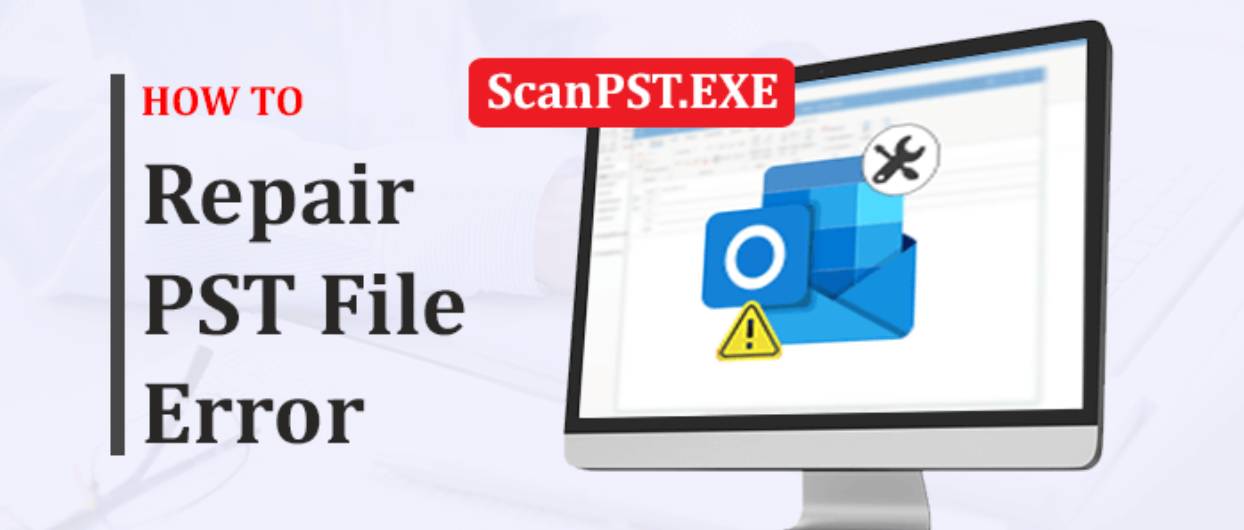Hello!
 Email communication has become part and parcel of our day-to-day life. Be it in a professional font or business life, everyone is using email communication. Desktop email clients have also made their ways and users are taking full benefits of email communication clients such as MS Outlook. Not only email, but this application also includes features like contacts management, task management, calendars, etc. Numerous users use this application for the above-mentioned features.
Email communication has become part and parcel of our day-to-day life. Be it in a professional font or business life, everyone is using email communication. Desktop email clients have also made their ways and users are taking full benefits of email communication clients such as MS Outlook. Not only email, but this application also includes features like contacts management, task management, calendars, etc. Numerous users use this application for the above-mentioned features.
MS Outlook saves all this email data in a particular file well known as PST (Personal Storage Table). This PST file is of two kinds;
- ANSI PST
- Unicode PST
 MS Outlook 2002 and its previous versions use ANSI file format for the PST file. The size limit of the ANSI file is 2GB. Microsoft Outlook 2003 and its new versions use Unicode file format. Unicode on the other side is more advanced and has a size limitation of 20 GB. However, MS Outlook 2010 has the limit to store up to 50 GB.
MS Outlook 2002 and its previous versions use ANSI file format for the PST file. The size limit of the ANSI file is 2GB. Microsoft Outlook 2003 and its new versions use Unicode file format. Unicode on the other side is more advanced and has a size limitation of 20 GB. However, MS Outlook 2010 has the limit to store up to 50 GB.
These size limits are easily crossed when a user has bulk usage of email communication and most importantly attachments attached to the emails.
When this size limit is reached respectively, the PST file often becomes prone to corruption issue and it has a greater risk of damage. You will face many errors while working on this corrupted PST file. Microsoft provides an inbuilt utility to cure this issue to some extent. Let’s see what this utility does;
Inside Engineering & Working Of scanpst.exe Program
ScanPST checks if the tables are associated with the folders properly, and makes sure that every row in the table or message in the folder is present or not. PST file is basically a database file that contains structures like BTrees and reference counts. Inbox Repair Tool mostly checks and corrects the errors associated with these internal data structures.
These are considered low-level objects, and upper-level structures such as messages, tasks, contacts, etc are structured upon them. Low-level objects are not connected with these upper-level objects. So if the corruption is associated with low-level objects then ScanPST can easily repair it but if the upper-level objects are corrupted, then ScanPST will not be sufficient to help you.
Where does the ScanPST EXE Program fail?
 Size Limitation Of 2 GB: Gone are the days when your PST file used to have a file size of 2 GB. As discussed above MS Outlook 2003 and above supports Unicode file format and has file size much more than 2 GB.
Size Limitation Of 2 GB: Gone are the days when your PST file used to have a file size of 2 GB. As discussed above MS Outlook 2003 and above supports Unicode file format and has file size much more than 2 GB.
But does Inbox Repair Tool fix PST file larger than 2 GB? The answer is a big “NO”. ScanPST can only repair corrupted PST files with size below than 2GB and this is the major drawback of this utility.
Fails When PST Is Severely Damaged: The tool is reliable and free but when your PST file is badly corrupted this utility will not repair your file completely.
Sometimes corruption damaged file structure and internal elements of PST files very badly, this not only destruct lower-objects, but it also corrupts upper-objects badly and this cannot be cured using scanpst.exe alone.
Unable To Find Location Of scanpst.exe: This might be a very rare situation but many users are unable to reach the utility as this program is partly hidden residing under the Program Files under C Drive. Users face a problem to find the exact location of the program.
Your Data Can Be Unnecessarily Deleted: When ScanPST does not find any element such as message or table in its folder or if the whole folder is not found, it is first validated and when not found again it considered as corrupted and it is removed from the database. It means that if a specific block is unreadable by the program it will be deleted and this can be harmful to your PST file as it goes on deleting unreadable objects.
What is nest if ScanPST.EXE fails?
If the scanpst.exe tool fails to resolve your issues you can try some alternative methods. However, these manual methods might work for some and might not for others. Here are some alternatives.
 RUN SCANDISK UTILITY IN COMMAND PROMPT
RUN SCANDISK UTILITY IN COMMAND PROMPT
Go to start menu>>Command prompt>>Right click to select “Run administrator”
Type ‘chkdsk /f’ and press Enter
Follow instructions given on-screen to begin scanning
ISSUE SCANNING PROCESS IN DRIVE
Go to Start>Computer>C: drive>Properties
In the “Properties” window, go to “Tools” then click on “Check now”
In the next dialogue box, select both options and click on Start
MOVE PST FILE TO ANOTHER COMPUTER
 Another thing that you can do to resolve the scanpst.exe error is to move the PST file to another system. You should ensure that the other system has the same version of Outlook. You can run the tool and see if the error still exists.
Another thing that you can do to resolve the scanpst.exe error is to move the PST file to another system. You should ensure that the other system has the same version of Outlook. You can run the tool and see if the error still exists.
These are all hit and trial methods and you can’t have any certainty that this error will be resolved.
So, what if after all these methods the Scanpst.exe fails to work?
Automated Tool
 The PST Email Recovery is an advanced third-party tool that has been professionally developed to repair corrupt or damaged PST files. When the scanpst.exe tool fails to recover corrupt or damaged files, you can use this tool as a reliable solution. The tool is easy to use and offers step by step instructions to detect and scan the corrupt PST files. It repairs them and restores them back without altering their original properties. This PST repair tool also saves the repaired PST items to new healthy PST. There is no size limitation to load large PST files. It can also recover deleted items that have become inaccessible.
The PST Email Recovery is an advanced third-party tool that has been professionally developed to repair corrupt or damaged PST files. When the scanpst.exe tool fails to recover corrupt or damaged files, you can use this tool as a reliable solution. The tool is easy to use and offers step by step instructions to detect and scan the corrupt PST files. It repairs them and restores them back without altering their original properties. This PST repair tool also saves the repaired PST items to new healthy PST. There is no size limitation to load large PST files. It can also recover deleted items that have become inaccessible.
So in order to have the best Outlook PST repair solution right in your hands, try this tool today.
Summary
This article focused on how we can easily fix the issue in SCANPST.exe or Inbox repair tool. Also, we have prescribed an automated tool to repair PST file. I hope you find this article useful.
Thank you!
Join us on social networks!
See you!






